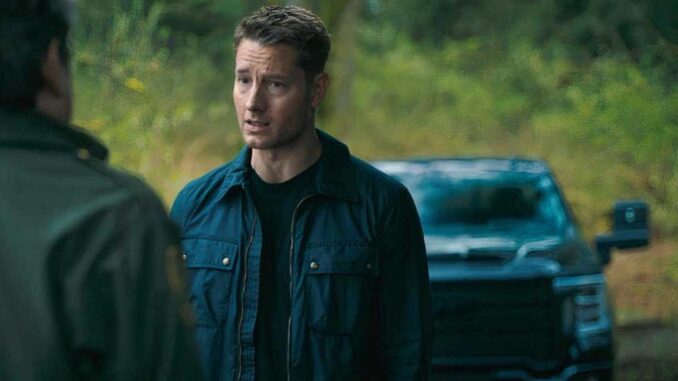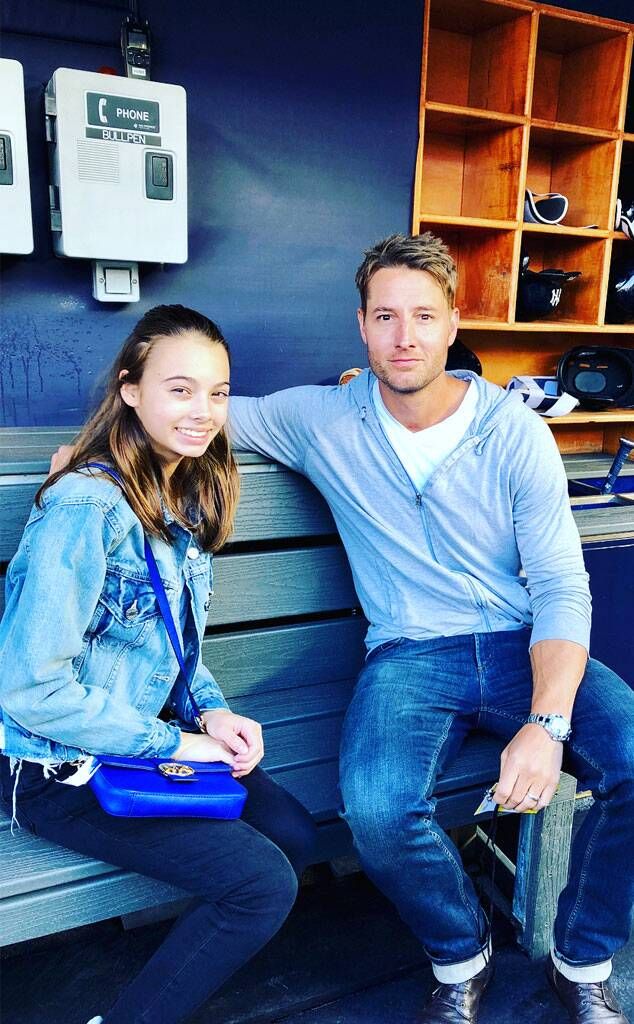
When speaking with Men’s Journal, Justin Hartley talked about the success of Tracker. While he points out in the interview that Tracker is a procedural that allows the main character to grow over time, even if the story is not heavily serialized, he also believes Colter’s distinct type of masculinity provides success.
Hartley describes Colter Shaw as someone who “doesn’t apologize for his masculinity,” but also as someone who “is all about talking with people.” He told the magazine: One of the things I really love about Colter and the way we’ve built him is that he doesn’t apologize for his masculinity. I think that’s what people are looking for. You’re asking yourself, ‘What kind of people do I want to hang out with?’ And particularly: ‘What kind of male friends do I have in my life that I really value?’
I think we’ve crafted a character that is so emotionally evolved, and he really does want to get to the root of why people do things… He’s a man through and through. And that doesn’t mean you have to be the loudest person in the room and know every single f*cking thing and throw tables around and scream and shout and yell and smoke and drink. He’s all about talking with people. Reading people. Understanding them. He’s an all-encompassing man. He’s not just a guy. He’s a man.
Hartley’s assessment of Colter is accurate. Though Colter might be able to handle himself in a fight and survive in harsh climates on his own, he is relatively soft-spoken, willing to listen to those around him, and willing to understand points of view that are not his own. Those are not traits seen in many hyper-masculine action heroes.
A New Kind of Leading Man
Justin Hartley isn’t just playing another brooding, rugged adventurer in Tracker—he’s flipping the script on what it means to be masculine on TV. In a world oversaturated with toxic, alpha-male personas, Hartley’s character, Colter Shaw, is refreshing. He’s strong but vulnerable, assertive but empathetic. And that, according to Hartley himself, is exactly why Tracker is resonating with so many viewers.
So what’s the big deal about “healthy masculinity”? Let’s dive into it—and explore how one primetime drama might just be redefining heroism for a new generation.
What Is Healthy Masculinity, Anyway?
Breaking It Down
Healthy masculinity doesn’t mean being soft or weak. Instead, it involves embracing emotional intelligence, respecting boundaries, showing empathy, and being confident without being controlling. It’s about strength and sensitivity—a balance that’s rarely shown in mainstream media.
Why It Matters in 2025
We’re living in a time when masculinity is being reexamined. From social movements to shifting workplace dynamics, people are demanding a more compassionate kind of male leadership. Tracker meets this moment with a protagonist who embodies it naturally.
Meet Colter Shaw—TV’s Newest Trailblazing Hero
Who Is Colter Shaw?
Colter Shaw is a lone-wolf survivalist who uses his tracking skills to help people. He’s driven, determined, and fiercely independent—but not at the cost of his compassion. He doesn’t bulldoze others to get the job done; he listens, collaborates, and cares.
The Unlikely Role Model
What makes Colter so magnetic isn’t just his rugged good looks or sharp instincts—it’s the way he handles conflict. He doesn’t resort to violence unless absolutely necessary. He talks things out. He considers others’ emotions. It’s masculinity with a moral compass.
Justin Hartley’s Take on Masculinity
The Actor’s Intentional Approach
Hartley has been vocal about how intentional he’s been with shaping Colter. In interviews, he’s explained that this isn’t your typical tough-guy act. He wants Colter to reflect real men—flawed, complex, and capable of growth.
“It’s Not Just About the Action”
According to Hartley, the heart of the show isn’t just the suspense or thrill. It’s about the human stories, the emotional stakes, and how Colter navigates them with integrity.
“We didn’t want a macho caricature,” Hartley told one outlet. “We wanted a man people could respect and relate to.”
Why Audiences Are Connecting With Colter
Representation Matters
People are tired of stereotypes. Women are tired of watching men on screen who solve everything with their fists. Men are tired of feeling like they have to hide their feelings. Colter gives everyone a reason to hope for something better.
A New Generation of Viewers
Younger viewers—especially Gen Z and Millennials—are looking for characters who reflect their values: kindness, empathy, and emotional resilience. Colter fits the bill perfectly.
The Psychology Behind Healthy Masculinity
Emotional Intelligence as a Superpower
Studies show that men who express empathy and emotional intelligence tend to have healthier relationships and stronger leadership skills. Colter exhibits this in every episode, making him not just likable, but aspirational.
Letting Go of the “Tough Guy” Trap
Traditional masculinity tells men to “suck it up.” Colter challenges that. He feels deeply. He processes trauma. He learns from mistakes. And that’s what makes him powerful.
Behind the Scenes—Tracker’s Writers Get It Right
Writing With Purpose
The show’s writers deserve credit, too. They crafted Colter with nuance, avoiding the lazy clichés. They didn’t write him to dominate—they wrote him to connect.
A Team Effort
From directors to producers, everyone on Tracker bought into the vision. That consistency shows. And audiences are rewarding it with loyalty and love.
How Tracker Stands Out in a Crowded TV Landscape
Not Just Another Crime Show
Yes, there’s action. Yes, there are mysteries. But Tracker feels different because it centers heart over heroics. That’s a rare feat on network television.
It’s More Than Entertainment—It’s a Statement
Every time Colter shows vulnerability or refuses to escalate violence, it sends a message. Masculinity doesn’t have to mean domination. It can mean dignity.
The Ripple Effect—Cultural Impact of Tracker
Conversations Around the Dinner Table
People are talking about this. Parents are watching Tracker with their teens and using Colter as an example of how to handle tough emotions.
Social Media Buzz
Scroll through Twitter or Reddit and you’ll find threads celebrating Colter’s character. People are hungry for more characters like him. And they’re not shy about saying so.
Masculinity in 2025—A Turning Point?
A Sign of the Times
Tracker is part of a bigger shift. Across media, we’re seeing more men portrayed as caretakers, allies, and nurturers—not just warriors or rebels.
Justin Hartley as a Catalyst
Hartley might just be the face of this movement on television. And if his fans have anything to say about it, he’s not slowing down anytime soon.

What Other Shows Can Learn from Tracker
Depth Over Drama
Not every male lead needs to cry on screen. But giving them depth, emotional arcs, and meaningful relationships makes them more relatable—and powerful.
Authenticity Wins
Audiences can smell fake a mile away. Colter works because he feels real. And real is what resonates.
Final Thoughts—Colter Shaw Isn’t Just a Character. He’s a Blueprint
Justin Hartley and the team behind Tracker didn’t just make a great show—they sparked a conversation. In Colter Shaw, they’ve created a role model for healthy masculinity that men can look up to and women can admire. It’s not about being soft—it’s about being strong in the right ways.
So if you’ve ever wondered what masculinity should look like in 2025, flip on Tracker. You’ll find your answer wrapped in flannel, with a compass in hand—and a heart that leads the way.